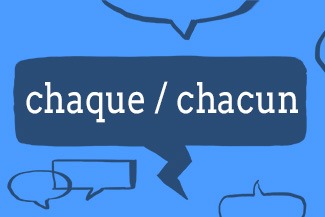This week’s French word of the week is baisser. Click the icon below to hear its pronunciation:
function playAudio(url) { new Audio(url).play(); }The word baisser is a verb that follows the same conjugation pattern as other common -er verbs in French. It is generally used to mean to lower or to turn down when followed by a noun or noun phrase:
Il fait moins froid, tu peux baisser le chauffage. It’s not so cold, you can turn down the heating.
Ils devraient baisser leurs prix. They should lower their prices.
baisser la voix to lower one’s voice
When it is not followed by a noun or noun phrase, baisser is often used to indicate a decline in something, and will often be translated as to fall or to go down:
Le nombre de passagers voyageant en avion baisse. The number of air passengers is falling.
Le prix des jeux vidéo a baissé. The price of video games has gone down.
Le niveau de l’eau baissait. The water level was dropping.
Another common meaning of baisser has to do with vision and light – it can be used to mean to fail when talking about a person’s sight:
Sa vue baisse. Her sight is failing.
It can also mean to (grow) dim in relation to light:
J’ai baissé les lumières. I dimmed the lights.
La lumière baisse. The light is growing dim.
There is a reflexive form of the verb, se baisser, which means to bend/reach/stoop down:
Elle se baissa pour les ramasser. She reached down to pick them up.
Il faut se baisser pour entrer dans la chambre. You have to bend down to get into the room.
There are plenty of ways in which baisser is used more figuratively in French – for example:
baisser sa garde to let one’s guard down / to drop one’s guard
baisser les bras to give up (literally to lower one’s arms)
baisser le rideau (sur quelque chose) to bring the curtain down (on something)
With that, we’ll bring the curtain down on this week’s blog, but come back to find out more about our next French word of the week.
Written by Gina Macleod, language content editor.
All opinions expressed on this blog are those of the individual writers, and do not necessarily reflect the opinions or policies of Collins, or its parent company, HarperCollins.



